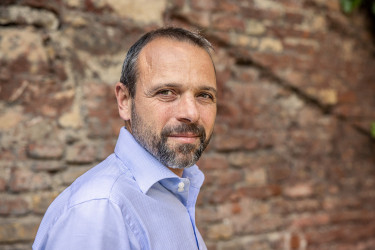Cryptocurrencies, ESG, digital UX - What are the hottest Wealthtech trends in Hungary?

Asked about their strategic goals, long-term plans for the post-Covid period and the recovery of the market after freezing up last year, Róbert Kő replied that they had been lucky enough to turn the pandemic-related challenges to their advantage.
While working from home did make team work more difficult, efficiency was increased in several areas which helped further develop Dorsum’s products and continue taking its innovative solutions to the market.
He highlighted that they ‘passed the test’ of successfully building online relationships with new customers and managed to reach many potential clients, make new connections, and get ready for the next steps through their online campaign, webinars and similar means.
Kő also noted that the company had carried out a significant organisational development in its international business development business, and that the first results of that are already visible.
Asked about expanding to foreign markets, Bálint Fischer replied that the presence of Dorsum is currently the strongest in Central and Eastern Europe, holding different positions in various segments. It is market leader in Hungary, Romania, and Bulgaria with solutions relating to security clearing services, and
we are actively working to make successful debuts with these products in new countries, primarily in this region.
He added that they see serious potential both in the region and beyond in asset management and consultancy solutions which they had started to build a little more than five years ago and in which Dorsum has become market leader in the region by now.
Last year Dorsum struck a deal with a major London-based wealth management company to deliver its entire consultancy and client portal solution.
Róbert Kő noted that they are getting in-depth knowledge about British demands via this project, and will aim to bring back this knowledge into CEE and incorporate it into their future solutions.

Fischer added that they are actively focusing on the UK market in close co-operation with this client.
Whereas London is currently a key market Dorsum has plans to step up its game in Poland, Czechia, and Slovakia too, he said. The company has recently started up a new subsidiary in Poland and plans to add more. A stronger focus will be put on the Benelux market too, said Fischer, adding that a robust fintech hub is coming to existence on the Brussels-Amsterdam axis where Dorsum is also building up relationships consciously.
Kő said they might need an office in London to be credible, visible and show the partners that Dorsum is also investing in the market, with serious intentions and long-term plans.
Fischer said that winning their first project in London did have something to do with the price, “but our professional credibility and reliability, as well as our approach were just as important.” Given that the company has products in the realm of investment services and it takes these to various markets, it started from a disadvantage in London against players with local references, given that it had to tailor a lot of things to the specific market needs there, he added.

Fischer highlighted that joint work online, which already had its tradition before Covid, advanced to a whole new level.
Kő stressed that while they are looking for opportunities and a future in London, they do not forget their roots, who they are working for and where they have to perform well every day. They are trying to bring the lessons learned in London back to the local market as quickly as possible.
Taking a recent example, Fischer said they have learned first hand how advanced this particular London-based client manages ESG, with its own metrics built up over years. Dorsum was able to learn how a top player in London does this in practice, what its customers expect and what it plans in terms of ESG in the future. Not many businesses have this practical experience in Central and Eastern Europe, and Dorsum aims to bring this knowledge to its partners here.
Asked about the popularity of the Software-as-a-Service (SaaS) model Dorsum started to use in the second half of 2020, Kő replied that they already have three clients and are in talks with several potential partners globally, because “we clearly see that this is the future of the software market.” Dorsum is actively seeking which of its solutions working fundamentally as internal banking systems could be migrated into an SaaS-based operation and how.
Fischer said the company is going through a captivating transformation because when a new project comes up they always ask whether it would be more efficient to sell it on an SaaS basis. Dorsum’s SaaS pilot product offered a great deal of lessons and using the experiences the company has already started to work out how robust security back-office products can be moved in that direction.
Dorsum also plans to keep modernising and replacing its core systems in Hungary, and Kő said they decided it was best to build smaller modules around the existing monolith systems instead of patching them up.
“Five years ago, we would have certainly incorporated these modules into our existing systems somehow, but the direction is increasingly to have a lot of small satellite systems orbiting the large central systems,” he said.
This way we are practically creating flexible, containerized, microservice-based, well-definable units around the existing systems, transferring some of the existing functionalities into these new frameworks.
This chimes together with the increasing popular approach in financial IT that when it comes to large financial institutions, the old systems are not replaced but brought up to a minimum functional level in the technologies they are good and robust at, adding new solutions to areas where they need upgrades.
Asked about the challenges local wealth management service providers are facing when it comes to products and solutions capable of winning over new (younger) costumers and remaining competitive versus rivals such as Revolut, Fischer replied that in terms of online stock trading every Hungarian service provider is competing on a global level therefore the structure of the market is under heavy transformation.
The investment consultancy model is a market that is a lot more protected, and competition takes place there on a local level, while the digital transformation pressure has been growing there too.
Another exciting theme on the regional investment and wealth management market is how the players will incorporate ESG aspects into their services models, he added.
In one or two years, this will become a key business issue in this region as well, because customers will increasingly demand it, said Fischer.
Asked about Dorsum’s potential response to the amazing run of the crypto market, Fischer replied that this is still a business and regulatory issue in CEE for now therefore everyone is treading with caution in this world.
Until there are grey zones in regulations, everyone will only have problems with it. Regulatory bodies lack the necessary insight, banks lose revenues, and customers have to keep such exposures at foreign service providers.
We think it’s only a matter of time before this asset class has its regulated and prudent place both in the EU and in Hungary. And then when a bank wants to offer crypto Dorsum needs to be there to help.
Asked about the dangers of cryptocurrencies for investors and ways to manage the crazy fluctuations, Kő responded that financial institutions and regulators need to assume the management of that risk exactly because they want to take care of the investors, and because banks want to handle the money of customers instead of letting them lose it.
I think it will be in everyone’s interest to somehow wedge crypto in between private banking wealth management and brokerage services.
Regulation is necessary because otherwise the financial institutions would not obtain a share or add to a part of people’s wealth, he added.
Fischer noted that total capitalisation of the crypto market is currently around 1.5 trillion US dollars which is broadly on a par with the capitalisation of Amazon’s or Google’s. The still most popular bitcoin would be a Top10 instrument based on its capitalisation on the New York Stock Exchange, he added.
We’re talking about volumes and revenue potentials left lying on the side of the road by incumbent players that will be increasingly hard to say no, we’re not dealing with them.










